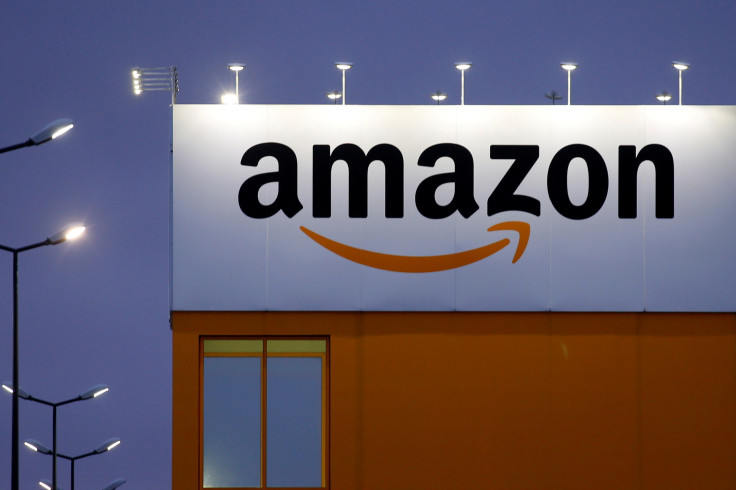Amazon gets CMA approval for iRobot acquisition despite past concerns
There had been large worries over whether Amazon would eliminate competition in the smart home market if it purchased iRobot.

Leading online retailer and tech organisation Amazon has been granted approval by the Competitions and Markets Authority (CMA) over its intended purchase of American-founded tech company, iRobot.
Today, the CMA has cleared the acquisition which is worth $1.7 billion and is set to allow Amazon to expand its smart home appliance operations.
iRobot is mostly known for creating and building consumer robots built for the home such as the autonomous robotic vacuum cleaner, Roomba, and Braava, a robotic device that mops the floor. Also, it has manufactured a hobbyist robot called iRobot Create, alongside Roots, one of its current home robots that teaches kids how to code.
In order for the CMA to come to a conclusive decision on whether to approve the proposed acquisition, it looked into three key areas where possible concerns could arise. One of the matters was if Amazon would be a competitive supplier in the robot vacuum market if the purchase was not approved and whether there would be a significant reduction of competition in the market if the deal was waived through.
Also, the CMA weighed up whether or not iRobot's competitors would be at a disadvantage if the merger went through. This is as Amazon's online store remains the most common place for customers in Britain to purchase robot vacuum cleaners so there was concern over Amazon possibly making matters harder for iRobot's competitors when it comes to online shopping.
The third matter was if iRobot items would become a necessary input for smart home platforms and if the smart home competitors of Amazon would face disadvantages due to the acquisition. After taking these areas into consideration, the CMA found that the merger would not result in a lack of competition in the market in Britain.
It concluded that the market position for iRobot's supply of robot vacuum cleaners was fairly small with the company facing plenty of competition. Due to this, the CMA found that the market would not be largely affected by competition being lost to Amazon through the merger going ahead.
Also, the CMA decided that Amazon would have no real motivation to blow its competition out of the water – despite having the status to do so. This is because the demand for robot vacuum cleaners in Britain is not massive and is not expected to rise anytime soon, so Amazon would be suffering losses from putting efforts into trying to eliminate its competition with possible losses in sales commission and advertising revenues.
Furthermore, the merger being granted would not destabilise the competition in the smart home sector as robot vacuum cleaners are not a valuable part of Britain's smart home market. Also, it was discovered that there would be inevitable competitors which have mostly similar features to the iRobot products and that would create rival offerings in the smart home market.
Senior Director of Mergers at the CMA, Colin Raftery, spoke on the decision, commenting: "More people are choosing to use 'smart' tech in their homes – whether that's listening to the radio through a smart speaker, answering the door using a video doorbell, or keeping floors clean with robot vacuum cleaners."
Raftery went on to add: "That's why it's important to ensure tech firms that already benefit from powerful positions aren't able to use those positions to undermine competitors at the expense of UK consumers and businesses. Here, after a thorough investigation, we're satisfied that the deal would have no impact on competition in the UK."
Despite the CMA approving Amazon's acquisition in Britain today, the deal will remain under regulatory review across different jurisdictions.
An initial opening phase investigation occurred two months ago from the CMA where it investigated the two merging organisations by looking into data and internal documents so it could get an understanding of how both handle competition and the potential of them expanding services down the line.
Also, the CMA looked wider into the market by finding evidence of other competitors that supply robot vacuum cleaners as well as British retailers and smart home platforms.
Although the CMA has cleared Amazon with its iRobot acquisition, it is currently overseeing another case involving Amazon, revolving around suspected anti-competitive practices that involve sellers on the company's British market. There is concern that Amazon may be using its dominance to affect the competition in Britain by giving advantages to its own retail business and sellers more so than third-party sellers when it comes to providing sale-making services to them.
Elsewhere, Amazon recently settled Ring and Alexa privacy complaints from US regulators by paying $30.8 million due to accusations that female users of the technologies were being spied upon. Amazon also had to pay $25 million to settle accusations from the Federal Trade Commission over children's voice recordings on Alexa smart speakers not being erased like they were supposed to.
Also, a recent investigation by Which?, has revealed Amazon, among six other major British retailers, has been found to be offering incorrect advice regarding consumer rights.
© Copyright IBTimes 2025. All rights reserved.






















